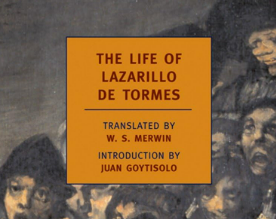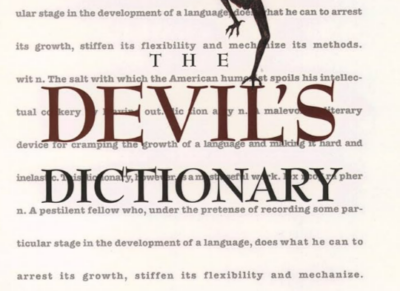91 Results with the "Satire" genre
Adventure Fiction (1164)
Biography (435)
Business & Finance (1)
Children's Literature (124)
Comics (6)
Culture (51)
Drama (123)
Dystopian (29)
Fable (86)
Fantasy (1132)
Fantasy (203)
Fiction (1010)
Finance (1)
Gothic Fiction (12)
Historical Fiction (615)
History (122)
Horror (56)
Lifestyle (36)
Literary (404)
Literary Fiction (207)
Memoir (113)
Mystery (422)
Non-fiction (87)
Novel (549)
Paranormal Fiction (96)
Philosophical (182)
Philosophy (45)
Poetry (249)
Political Fiction (14)
Politics (42)
Practical (32)
Psychological (4)
Psychological Thriller (108)
Relationship (6)
Romance Novel (716)
Romantic Melodrama (14)
Science (46)
Science Fiction (345)
Self-help (68)
Society (65)
Society (2)
Spiritual Growth (1)
story (2)
Thriller (704)
True Crime (56)
view (11)
Women's Fiction (2)
Young Adult (233)
-
Chapter
Chapter VI
 The animals toiled relentlessly throughout the year, driven by the belief that their labor benefited their own community rather than exploitative humans. Despite grueling hours, including voluntary Sunday work enforced by ration cuts, they fell behind on tasks like sowing crops, foreshadowing a harsh winter. The windmill construction posed unexpected challenges, particularly breaking limestone boulders without human tools. Through collective ingenuity, they devised a method using gravity—dragging…
The animals toiled relentlessly throughout the year, driven by the belief that their labor benefited their own community rather than exploitative humans. Despite grueling hours, including voluntary Sunday work enforced by ration cuts, they fell behind on tasks like sowing crops, foreshadowing a harsh winter. The windmill construction posed unexpected challenges, particularly breaking limestone boulders without human tools. Through collective ingenuity, they devised a method using gravity—dragging…-
23.3 K • Ongoing
-
-
 Chapter V: How They Took Lazaro to the Capital begins during one of the most dehumanizing periods of Lazaro’s life, where survival became its own kind of imprisonment. Encased in a wooden tank that mimicked a coffin more than a home, he was paraded through towns not as a person but as a spectacle—a man who, they claimed, had turned into a fish. His captors crafted this illusion with precision, and the crowds were eager to believe. For six long months, Lazaro existed on nothing but the dirty water in…
Chapter V: How They Took Lazaro to the Capital begins during one of the most dehumanizing periods of Lazaro’s life, where survival became its own kind of imprisonment. Encased in a wooden tank that mimicked a coffin more than a home, he was paraded through towns not as a person but as a spectacle—a man who, they claimed, had turned into a fish. His captors crafted this illusion with precision, and the crowds were eager to believe. For six long months, Lazaro existed on nothing but the dirty water in…-
108.4 K • Ongoing
-
-
 Chapter V unfolds as Lazaro recounts his time under the employment of a pardoner—a man skilled in the art of spiritual persuasion and even more adept at deceit. This pardoner makes his living selling papal indulgences, documents claiming to absolve sins in exchange for a fee, and he crafts every word and gesture to sell them convincingly. He begins his efforts with small bribes to the local clergy, giving wine, fruit, or small coins to secure their support in urging parishioners to buy. The pardoner…
Chapter V unfolds as Lazaro recounts his time under the employment of a pardoner—a man skilled in the art of spiritual persuasion and even more adept at deceit. This pardoner makes his living selling papal indulgences, documents claiming to absolve sins in exchange for a fee, and he crafts every word and gesture to sell them convincingly. He begins his efforts with small bribes to the local clergy, giving wine, fruit, or small coins to secure their support in urging parishioners to buy. The pardoner…-
108.4 K • Ongoing
-
-
Chapter
Chapter V — Crome Yellow
 Chapter V draws the reader into a vivid landscape of rural life, where farm animals and philosophical musings share equal space. The group’s visit to the Home Farm, hosted by Henry Wimbush, starts innocently enough with a tour of the piggery. There, a sow’s surprising fertility—a litter of fourteen—stirs admiration, while another's disappointing five brings forth practical, if unsettling, commentary about culling. Anne, unsettled by the cold calculations of agricultural efficiency, voices her…
Chapter V draws the reader into a vivid landscape of rural life, where farm animals and philosophical musings share equal space. The group’s visit to the Home Farm, hosted by Henry Wimbush, starts innocently enough with a tour of the piggery. There, a sow’s surprising fertility—a litter of fourteen—stirs admiration, while another's disappointing five brings forth practical, if unsettling, commentary about culling. Anne, unsettled by the cold calculations of agricultural efficiency, voices her…-
141.2 K • Ongoing
-
-
Chapter
Chapter V
 The chapter opens with Mollie, the vain mare, becoming increasingly unreliable as winter approaches. She neglects her duties, admires her reflection, and is eventually confronted by Clover about consorting with a human from a neighboring farm. When Clover discovers hidden sugar and ribbons in Mollie's stall, it confirms her suspicions of betrayal. Mollie soon abandons Animal Farm altogether, choosing a life of comfort under human care, symbolized by her appearance pulling a dogcart with a red ribbon—a…
The chapter opens with Mollie, the vain mare, becoming increasingly unreliable as winter approaches. She neglects her duties, admires her reflection, and is eventually confronted by Clover about consorting with a human from a neighboring farm. When Clover discovers hidden sugar and ribbons in Mollie's stall, it confirms her suspicions of betrayal. Mollie soon abandons Animal Farm altogether, choosing a life of comfort under human care, symbolized by her appearance pulling a dogcart with a red ribbon—a…-
23.3 K • Ongoing
-
-
Chapter
Chapter Q
 Chapter Q opens with Bierce’s definition of Queen, who he presents as a monarch not limited to figurehead or consort. Her presence is shown to possess influence both active and implied, shaping outcomes whether she reigns directly or supports from behind the throne. Bierce suggests that while kings may rule, queens maneuver—often more subtly, and sometimes with greater lasting impact. This nuanced depiction challenges the assumption that power is loud, offering instead the idea that it is often wielded…
Chapter Q opens with Bierce’s definition of Queen, who he presents as a monarch not limited to figurehead or consort. Her presence is shown to possess influence both active and implied, shaping outcomes whether she reigns directly or supports from behind the throne. Bierce suggests that while kings may rule, queens maneuver—often more subtly, and sometimes with greater lasting impact. This nuanced depiction challenges the assumption that power is loud, offering instead the idea that it is often wielded…-
82.1 K • Ongoing
-
-
Chapter
Chapter P
 Chapter P opens with Bierce’s treatment of Pain, which he describes not merely as a physical sensation but as a reminder of life’s imperfection. It is framed not as something to avoid, but something that teaches—unwanted yet often more honest than pleasure. Bierce argues that pain, unlike happiness, demands attention and shapes behavior. In his view, discomfort is more instructive than joy, serving as a sobering influence on human pride. Through this, pain is elevated from nuisance to necessary…
Chapter P opens with Bierce’s treatment of Pain, which he describes not merely as a physical sensation but as a reminder of life’s imperfection. It is framed not as something to avoid, but something that teaches—unwanted yet often more honest than pleasure. Bierce argues that pain, unlike happiness, demands attention and shapes behavior. In his view, discomfort is more instructive than joy, serving as a sobering influence on human pride. Through this, pain is elevated from nuisance to necessary…-
82.1 K • Ongoing
-
-
Chapter
Chapter O
 Chapter O begins with Bierce’s sardonic take on Oath, described not just as a solemn vow but as an appeal to a deity designed to scare someone into telling the truth. He points out that its real power comes less from divine authority and more from the fear of perjury and punishment. The deeper suggestion is that society often relies on fear rather than integrity to uphold honesty. Bierce’s view strips the ceremonial dignity from the act and leaves behind a mechanism rooted in human insecurity. The oath…
Chapter O begins with Bierce’s sardonic take on Oath, described not just as a solemn vow but as an appeal to a deity designed to scare someone into telling the truth. He points out that its real power comes less from divine authority and more from the fear of perjury and punishment. The deeper suggestion is that society often relies on fear rather than integrity to uphold honesty. Bierce’s view strips the ceremonial dignity from the act and leaves behind a mechanism rooted in human insecurity. The oath…-
82.1 K • Ongoing
-
-
Chapter
Chapter N
 Chapter N begins with Bierce’s take on Nectar, the mythical drink of the gods, rendered here as a lost recipe that modern drinkers in Kentucky may have accidentally stumbled upon. His tone lightly mocks the human tendency to romanticize ancient myth while indulging in earthly pleasures that serve similar purposes. Bierce transforms nectar from a symbol of divine vitality to a joke about strong spirits, linking the sacred and profane through satire. This sets the stage for the chapter’s interplay…
Chapter N begins with Bierce’s take on Nectar, the mythical drink of the gods, rendered here as a lost recipe that modern drinkers in Kentucky may have accidentally stumbled upon. His tone lightly mocks the human tendency to romanticize ancient myth while indulging in earthly pleasures that serve similar purposes. Bierce transforms nectar from a symbol of divine vitality to a joke about strong spirits, linking the sacred and profane through satire. This sets the stage for the chapter’s interplay…-
82.1 K • Ongoing
-
-
Chapter
Chapter M
 Chapter M opens with Bierce’s sardonic interpretation of Mace, not as an ornamental staff of office, but as a relic of violence disguised in symbolism. Once wielded to physically crush opposition, it now merely represents authority—yet the threat it implies has not vanished. Bierce suggests that all symbols of power retain traces of their brutal origins, no matter how ceremonial they appear today. This observation invites reflection on how civilization dresses violence in the robes of civility. The…
Chapter M opens with Bierce’s sardonic interpretation of Mace, not as an ornamental staff of office, but as a relic of violence disguised in symbolism. Once wielded to physically crush opposition, it now merely represents authority—yet the threat it implies has not vanished. Bierce suggests that all symbols of power retain traces of their brutal origins, no matter how ceremonial they appear today. This observation invites reflection on how civilization dresses violence in the robes of civility. The…-
82.1 K • Ongoing
-
- Previous 1 … 5 6 7 … 10 Next
